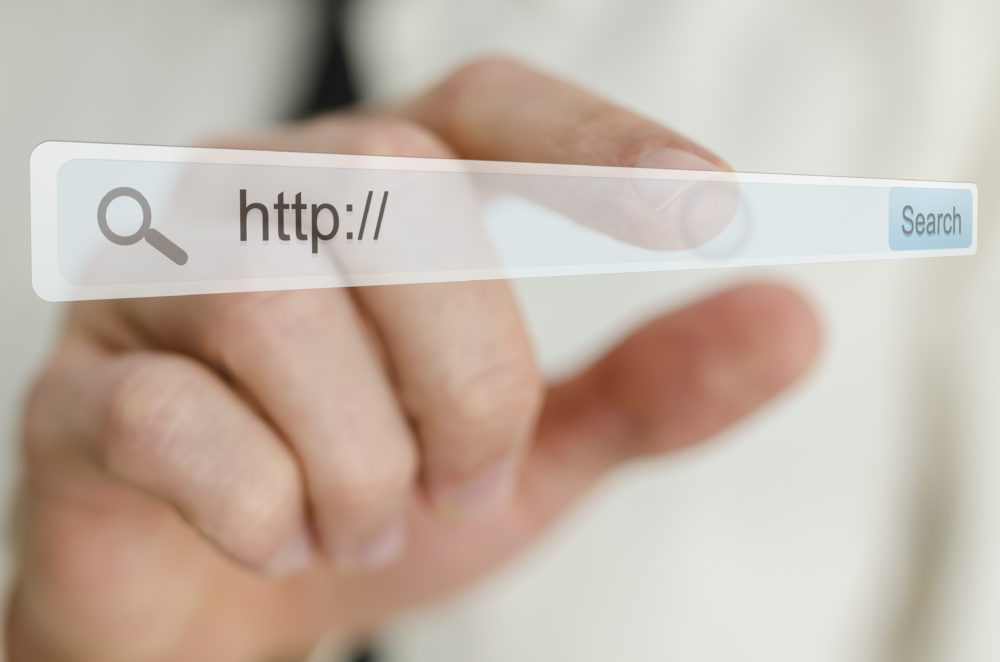A lot of your business success sits on your domain name: it’s how your customers find you, it reflects your brand and it can determine how successful your online traffic is.
The domain name is the part of a web address that identifies your business or organisation, such as the smallbusiness.co.uk portion of www.smallbusiness.co.uk.
It’s important to get the name right, so let’s break the process down into smaller steps.
How do I choose a domain name for a website?
The name should be a true representation of yourself and your business, but there are a few things you can do to help it perform well online.
Firstly, keep it as short as you can. Altering existing words or removing vowels can also be helpful. For example, Flowerbx works better than Flowerbox for the florist business. If you were to type ‘Flowerbox’ into Google, you would find articles and photos of flowerboxes and the business itself would be buried, whereas Flowerbx is the first result on the search engine.
Another alternative is to go the way of Google or Häagen-Dazs and make up a completely new word. These companies use their business name as their domain. Once again, it does well from a search engine perspective as it’ll likely be the first result.
Which domain extension (.co.uk, .com, .uk) should I use?
When we’re talking internationally, be careful about translation. Check the name you want to use doesn’t mean something else in another language. Similarly, check that the words in your domain name won’t merge and give the domain itself another meaning.
Charities should be using .org.uk, UK sites have .co.uk or .uk and personal websites and blogs look great with .me.uk.
If you want more than one, there’s no limit to the number of domain names you can register. In fact, registering multiple domain names helps to protect your core domain name (try .net or .uk). It’ll also stop users being sent to competitor sites.
How do I check if that domain name’s already been taken?
Web domain registration services tend to have domain name checkers – like this one – that let you see whether a domain name is already in use.
The price you pay is dependent on the provider you go with and which domain name extension you choose. Websites ending with .co.uk are a minimum of £4.99 a year and .com domains start at £9.99 per year.
If the domain name that you’re after is taken, the registry is likely to suggest alternatives. For example, if I type in bike.uk into the UK Domain, it says that the .uk, .co.uk, .org.uk and .me.uk forms of the name are taken. However, it will return location-based alternatives under each extension like bikeonline.uk and mybike.org.uk.
If you use a website builder, most include registering a custom domain as part of their package.
What do I do if somebody has the web domain I want?
Your first and best option is to go with a different domain extension. Let’s say bettybakes.co.uk is taken – you can opt for bettybakes.uk or bettybakes.net.
Alternatively, try a variation of your desired domain name. For example, bettybakes.co.uk can become bettysbakery.co.uk. Just remember that it must be easy to recall and difficult to misspell, so avoid something like bbakes.co.uk.
If another option simply won’t do, you can try and find out who is already using your domain name.
Once you’ve tracked down the owner, you can make them an offer. They may be reluctant to part with it – particularly if they know how valuable it is. Expect to be hit with a mega asking price and be prepared to haggle.
Your last bet is to wait until the domain name expires, particularly if the person who owns it doesn’t seem to be using it. The owner will be notified when it’s close to expiry and once it does, they will be given 30-45 days to renew it.
What if somebody has used the same name in the past?
If they don’t want it, owners have the option to make the domain name available for general registration or put it to auction.
Be careful – there may be a reason why the domain name wasn’t renewed. Perhaps it was too difficult in terms of SEO and was never found by users, there may be legal reasons not to renew, or it could’ve been banned by Google, so it won’t rank at all.
Many registrars also offer a domain name brokering service so that you can track domain names and when they expire, allowing you to swoop in when they open up. The broker can purchase the name on your behalf, if you prefer.
How do I buy the domain name?
Auction hosts will have protocols in place for making payments and transfers, so refer to their customer service team or FAQ section if you’re not sure.
It’s a similar story if you want to buy a domain name outright. The registrar will guide you through the process and the name will be yours. A standard fee will normally include a purchase fee and a yearly renewal fee – it will possibly involve a set-up fee as well.
Or if you’ve approached by the owner directly, you can make transfer and payment arrangements between you.
When you’re buying a domain name, be aware of legal implications. There is no established domain name law, but you enter into a contract with a domain name registry or reseller when you sign up. Dispute resolution policy can be used if the registry or reseller rules that the domain name you bought was purchased maliciously, such as buying it to sell to a competitor at an increased price.
The UK Domain helps small businesses and individuals get online, offering digital and business expertise along with tools for you to reach your goals. You can use the domain search tool below to help you find the perfect domain name.
Learn how to achieve more online with free and trusted advice from the UK Domain. Browse articles, guides and more here.





